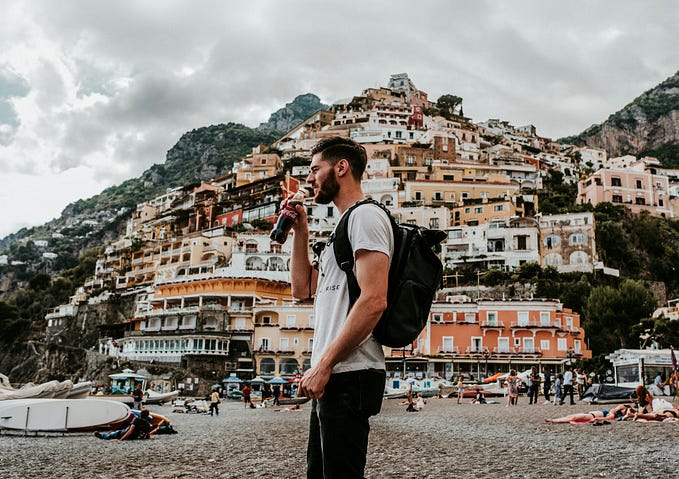A Venezuelan-American’s Wish List for Immigrants and Refugees
While the promises of immigration reform seem distant from reality for many, two wishes have a chance of coming true.
When it comes to my hopes for the future of immigration reform and recovery for Venezuela, two intertwined wishes top my list.
First is that the U.S. Senate follows action by the U.S. House of Representatives and passes the Dream and Promise Act, which will set up a path to citizenship for Dreamers — young people who came to the country as children, including those who are Deferred Action for Childhood Arrivals (DACA) recipients — and for those granted Temporary Protected Status (TPS) for humanitarian reasons. It is a crucial step toward a permanent solution for every immigrant and refugee who wants to contribute to this country, yet is trapped in a system that currently offers little hope for a better life. This promise of a legislative solution is the result of the tireless work of Dreamers, of grassroots organizers like Greisa Martinez and Guerline Jozef and everyday people who called on Congress to act. They got us this far, let’s help them make it the rest of the way.
Second is that the United States, as it reestablishes partnerships with other countries in the region, does its part to help stabilize the Venezuelan economic, political and humanitarian crisis and works to alleviate the conditions that have resulted in the forced displacement of many millions in recent years.
I am grateful to the Biden Administration for recently granting temporary protection for as many as 300,000 Venezuelans already in the United States deemed unable to safely return home due to humanitarian emergencies in the country. Sadly, even if my first wish is granted and the Senate stands with the roughly 2.5 million immigrants who would be covered by the House bill, Venezuelans won’t benefit because the legislation only applies to those granted TPS at the time of initial passage. As Dara Lind points out in Propublica, TPS “is a fragile status that leaves immigrants at the mercy of changing political winds.” To underscore that point, she highlights the temporary in TPS “is supposed to be a stopgap solution for migrants who may return home in the foreseeable future, after their country bounces back from a momentary crisis.”

The chances of Venezuela “bouncing back” soon are at present very bleak. The COVID-19 pandemic added to the country’s poverty woes, sending unemployment higher and forcing even more people to flee. The UN Refugee Agency reports that some 5.4 million Venezuelans have left their homes, with many going to neighboring countries, making this “one of the largest displacement crises in the world.”
It is a sad commentary on the state of affairs in the United States today that other countries — such as Colombia — have enacted immigration policies more comprehensive and more humane than ours. Instead of taking steps to alleviate pain and suffering, the prior administration and our lawmakers have contributed to more of both by increasing restrictions or dismantling legal pathways for migrants over the years.
As a child of Venezuela, and who still has family there — including my 93-year-old grandmother, whom I haven’t seen since 2014 — I can attest that given the choice few from that country would choose to leave. We love Venezuela, a country richer in far more things than oil and arepas. Venezuelans are ingenuous, warm and welcoming people. We are proud of our breathtaking rainforests, coral reefs, chocolate, abundant fruits, music and culture that Latin Americans throughout the continent appreciate. I know from my own experience that if it were possible to stay, most of my friends from my generation would have chosen to remain and contribute their talents at home.

I draw great inspiration that better days are still ahead for all migrants and refugees from the work that the hundreds of advocates, funders and social workers are doing to find long-term solutions to respond to the urgency of this moment. The United States cannot afford another failed attempt to extend meaningful legal protections to migrants and refugees, including the accelerated reunification of unaccompanied minors with family members. Whether comprehensive or in piecemeal fashion, there must also be appropriate legislative solutions and sustained resources for civil society to manage a concerted response. Without that, the region and possibly all across the Americas risk experiencing an explosive growth of refugee camps like in Lesbos, Greece or Matamoros, Mexico, where thousands of migrants have lived in protracted camps in notoriously unsafe conditions. Instead, life-saving services and advocacy of nonprofit organizations like Las Americas Immigrant Advocacy Center in El Paso or Puente for Human Rights in Phoenix should be resourced and placed at the forefront of developing and implementing long-term solutions.
Also fueling my hopes is what else is occuring in the United States as it grapples with issues of anti-Black and anti-Asian racism. To me, this convergence of events is not coincidental. Just as Black, Indigenous and Asian movement leaders have been unapologetically uncompromising in this moment,we all have an opportunity to rewrite history and transform the present to truly live in a world that recognizes and upholds values of racial equity, human rights and social justice.
Amalia Brindis Delgado is a human rights lawyer and the Associate Vice President of Strategy at Hispanics in Philanthropy



